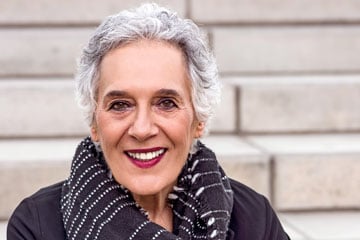
Members of the Ontario Bar Association’s nascent elder law section say its emergence was an inevitable reaction to the country’s aging population.

Members of the Ontario Bar Association’s nascent elder law section say its emergence was an inevitable reaction to the country’s aging population.
According to Steve Benmor, a family lawyer and mediator who was the section’s inaugural chairman, the idea of a group devoted to the unique legal needs of older adults was in the works long before its launch in late 2017, but he stepped up his efforts to make it happen around five years ago, as a result of a confluence of professional and personal events. At the time, he was chairman of the OBA’s family law section.
“I would get numerous enquiries from lawyers dealing with elder issues that felt to them like family law matters but actually don’t really fit: things like partners with dementia or where one spouse was moving into a nursing home while the other was staying home,” Benmor explains. “The same thing was happening for lawyers in other sections.”
In addition, he had acted as a substitute decision-maker for his mother, who suffered with Alzheimer’s in the later years of her life.
“I realized there were a lot of gaps and problems in the system for elderly people and that Ontarians were not really sure where to go to seek legal advice,” Benmor says. “There are a lot of lawyers who interface with seniors, so we pulled together a working group including people with practices across the spectrum.”
Section vice chairwoman Kimberly Whaley, principal at Whaley Estate Litigation in Toronto, says the section aims to educate lawyers, the judiciary and the public on issues including but not limited to housing, long-term care, pensions, age discrimination, financial abuse and end-of-life planning.
Demand is only likely to grow for the section’s services in the coming years as a result of ongoing demographic trends, Whaley adds.
The 2016 census recorded an over-65 population in Canada of almost six million, a total that exceeded the number of Canadians under 14 years of age for the first time. Statistics Canada estimates that, by 2036, the number of seniors could exceed 10 million, accounting for about one quarter of the entire population.
By comparison, those aged over 65 made up just eight per cent of Canadians in 1971, a proportion that grew to 14 per cent by 2010.
Still, Whaley says, the formation of the elder law section was delayed by opposition from some OBA members, particularly trusts and estates lawyers, who feared it would overlap with their own work.
“I don’t really agree. I think it’s a great opportunity to spark some really good collaboration between different sections,” she says.
“This has been way too long coming, but the catch-up has been fantastic,” says elder law section member-at-large Marion Korn, a Toronto mediator who co-authored the book When Harry Left Sally: Finding Your Way Through Grey Divorce in 2013. “An inter-disciplinary approach is profoundly basic to dealing with elder law issues. As it refines itself and evolves, I think it’s going to become one of the most important sections of the OBA,” she says.
Judith Wahl, founder of Toronto firm Wahl Elder Law, says she welcomes the interest, adding that she believes a demographics-based business case has helped lay the foundation for lawyers’ embrace of the OBA section.
“I just hope that people who call themselves elder lawyers aren’t doing it only because it’s a good angle for their advertising,” she says. “It’s great that people are starting to look at these issues in a more comprehensive way, but I hope they’re actually looking at them through the lens of older adults.”
Wahl’s own credentials in the area are impeccable. She only returned to private practice a year ago, following her retirement from Legal Aid Ontario’s ground-breaking Advocacy Centre for the Elderly.
Having joined the community legal clinic at its inception in 1984, Wahl spent most of her 33 years at ACE as its executive director.
“Things have changed hugely. In 1984, people didn’t call anything elder law,” she says. “We saw a lot of what I’d call good law, bad practice. If you look at health-care consent, the legislation is not necessarily that bad. In theory, everyone must give the same informed consent before care is delivered.”
Despite undoubted progress in the field, Wahl remains unconvinced that the rights and views of elder Canadians are adequately represented in the formulation of legislation and regulatory policy.
For instance, she remains skeptical of calls from some advocacy groups for legally mandated reporting of suspicions of elder abuse, arguing they have the potential to do more harm than good.
After the passage in 1985 of Nova Scotia’s Adult Protection Act, which requires all individuals, including friends, neighbours, lawyers or doctors, to report suspected neglect or abuse of adults in need of protection, Wahl says, police began referring complaints to an understaffed agency dedicated to elder abuse, instead of investigating themselves.
“Politically, it looks good, but seniors end up getting less criminal justice service and less protection,” she says.
“It’s like a Band-Aid that covers up the real problem of what led to the abuse without solving it.”